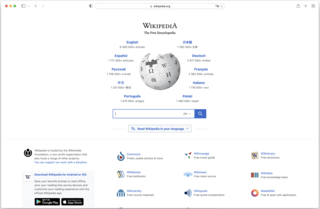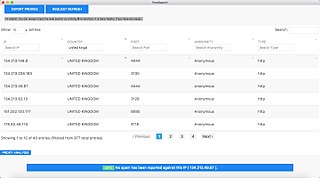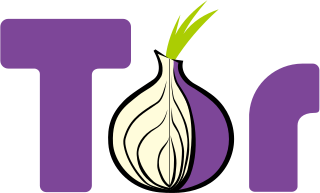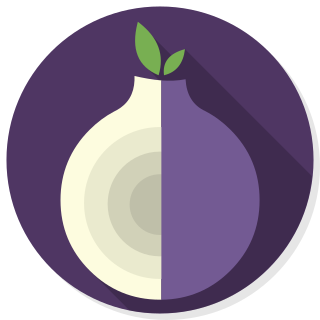Anonymous web browsing may refer to one of the following:
Anonymous web browsing may refer to one of the following:

A web browser is an application for accessing websites. When a user requests a web page from a particular website, the browser retrieves its files from a web server and then displays the page on the user's screen. Browsers are used on a range of devices, including desktops, laptops, tablets, and smartphones. In 2020, an estimated 4.9 billion people have used a browser. The most-used browser is Google Chrome, with a 64% global market share on all devices, followed by Safari with 19%.

In computer networking, a proxy server is a server application that acts as an intermediary between a client requesting a resource and the server providing that resource. It improves privacy, security, and performance in the process.
Google Toolbar was a web browser toolbar for Internet Explorer, developed by Google. It was first released in 2000 for Internet Explorer 5. Google Toolbar was also distributed as a Mozilla plug-in for Firefox from September 2005 to June 2011. On December 12, 2021, the software was no longer available for download, and the website now redirects to a support page.
A dark net or darknet is an overlay network within the Internet that can only be accessed with specific software, configurations, or authorization, and often uses a unique customized communication protocol. Two typical darknet types are social networks, and anonymity proxy networks such as Tor via an anonymized series of connections.

Startpage is a Dutch search engine company that highlights privacy as its distinguishing feature. The website advertises that it allows users to obtain Google Search results while protecting users' privacy by not storing personal information or search data and removing all trackers. Startpage.com also includes an Anonymous View browsing feature that allows users the option to open search results via proxy for increased anonymity.

xB Browser was a web browser designed to run on both the Tor and XeroBank anonymity networks, and is available as component of the xB Machine and the xB Installer.
jQuery is a JavaScript library designed to simplify HTML DOM tree traversal and manipulation, as well as event handling, CSS animations, and Ajax. It is free, open-source software using the permissive MIT License. As of August 2022, jQuery is used by 77% of the 10 million most popular websites. Web analysis indicates that it is the most widely deployed JavaScript library by a large margin, having at least three to four times more usage than any other JavaScript library.

A proxy list is a list of open HTTP/HTTPS/SOCKS proxy servers all on one website. Proxies allow users to make indirect network connections to other computer network services. Proxy lists include the IP addresses of computers hosting open proxy servers, meaning that these proxy servers are available to anyone on the internet. Proxy lists are often organized by the various proxy protocols the servers use. Many proxy lists index, which can be used without changing browser settings.
An anonymizer or an anonymous proxy is a tool that attempts to make activity on the Internet untraceable. It is a proxy server computer that acts as an intermediary and privacy shield between a client computer and the rest of the Internet. It accesses the Internet on the user's behalf, protecting personal information of the user by hiding the client computer's identifying information such as IP addresses. Anonymous proxy is the opposite of transparent proxy, which sends user information in the connection request header.
Opera is a multi-platform web browser developed by its namesake company Opera. The current edition of the browser is based on Chromium. Opera is available on Windows, macOS, Linux, Android, and iOS. There are also mobile versions called Opera Mobile and Opera Mini. Opera users also have access to Opera News, a news app based on an AI platform.

Tor, short for The Onion Router, is free and open-source software for enabling anonymous communication. It directs Internet traffic via a free, worldwide volunteer overlay network that consists of more than seven thousand relays.

DuckDuckGo is an American software company that offers a number of products intended to help people protect their online privacy. The flagship product is a search engine that has been praised by privacy advocates. Subsequent products include extensions for all major web browsers and a custom DuckDuckGo web browser.
Web tracking is the practice by which operators of websites and third parties collect, store and share information about visitors’ activities on the World Wide Web. Analysis of a user's behaviour may be used to provide content that enables the operator to infer their preferences and may be of interest to various parties, such as advertisers. Web tracking can be part of visitor management.
Agora was a World Wide Web email browser and was a proof of concept to help people to use the full internet. Agora was an email-based web browser designed for non-graphic terminals and to help people without full access to the internet such as in developing countries or without a permanent internet connection. Similar to W3Gate, Agora was a server application designed to fetch HTML documents through e-mail rather than http.

Dooble is a free and open-source web browser that was created to offer improved privacy for users. Currently, Dooble is available for FreeBSD, Haiku, Linux, macOS, OS/2, and Windows. Dooble uses Qt for its user interface and abstraction from the operating system and processor architecture. As a result, Dooble should be portable to any system that supports OpenSSL, POSIX threads, Qt, SQLite, and other libraries.

Orbot is a free proxy app that provides anonymity on the Internet for users of the Android and iOS operating systems. It allows traffic from apps such as web browsers, email clients, map programs, and others to be routed via the Tor network.

Tor Mail was a Tor hidden service that went offline in August 2013 after an FBI raid on Freedom Hosting. The service allowed users to send and receive email anonymously to email addresses inside and outside the Tor network.

PirateBrowser is an Internet browser by The Pirate Bay used to circumvent Internet censorship.

Brave is a free and open-source web browser developed by Brave Software, Inc. based on the Chromium web browser. Brave is a privacy-focused browser, which automatically blocks most advertisements and website trackers in its default settings. Users can turn on optional ads that reward them for their attention in the form of Basic Attention Tokens (BAT), which can be used as a cryptocurrency or to make payments to registered websites and content creators.